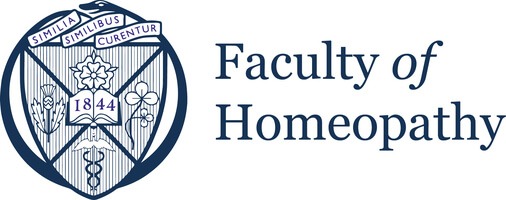Glutathione is the body's most essential thiol-containing antioxidant. It's produced and utilized by every cell in your body.
GSH exists in both a reduced (GSH) and oxidized form, but most of it remains in the former. This redox cycle is controlled by glutathione reductase, which catalyzes the conversion of GSSG to active GSH.
A growing body of evidence points to a relationship between glutathione levels and chronic illnesses such as fibromyalgia, myalgic encephalomyelitis/chronic fatigue syndrome (ME/CFS) and multiple chemical sensitivity (MCS). As their names suggest these syndromes are marked by increased oxidative stress and damaged redox states; their presence may suggest the need for extra glutathione supplementation to aid cellular repair processes.
Glutathione is the major intracellular antioxidant responsible for various redox related processes. Notably, it assists cell regulation and repairs of lipid and protein synthesis machinery. Furthermore, glutathione plays an important role in cell repair as well as protection against neurodegeneration, inflammation and autoimmune disorders.
Though oral glutathione has a limited bioavailability, supplemental glutathione can be taken orally, intramuscularly, intranasally, topically via cream or intravenously via iv drips. Other antioxidants like vitamin C and N-acetylcysteine may also help increase glutathione concentrations.
ME/CFS patients experience intense, long-lasting and recurrent fatigue that does not improve with rest. Signs include extreme tiredness, light sensitivity, headaches, muscle and joint pain, difficulty thinking/concentrating, mood swings and depression.
For a diagnosis of CFS or ME/CFS, patients must meet two criteria: fatigue that persists for at least six months and symptoms not more easily explained by another medical condition. They also must experience four or more of the following symptoms: substantial impairment in short-term memory/concentration; muscle or joint pain that does not improve with rest; tender lymph nodes; headaches of an unusual type or pattern; unrefreshing sleep patterns; and postexertional malaise (PEM) lasting more than 24 hours.
However, this is a somewhat subjective diagnosis and other factors such as emotional or physical stress may contribute to the development of ME/CFS. As such, the CDC has created diagnostic guidelines which include additional criteria to confirm a diagnosis of CFS or ME/CFS.
Chronic pain can make it difficult to perform daily activities such as working, sleeping or enjoying other leisure activities. It may also impact your mood and self-worth, cause you to feel isolated and alone and disrupt your social life.
People suffering from chronic pain may feel depressed, angry and frustrated about their condition. These emotions can exacerbate the intensity of their discomfort and make it harder to find a treatment solution that works.
Mark Hyman, MD suggests that some chronic pain conditions are due to low glutathione levels. To boost your levels, Dr. Hyman suggests eating a nutritious diet and getting plenty of exercise as well as quality sleep each night.
Glutathione is an essential antioxidant, protecting your cells against oxidative stress which can lead to inflammation, cancer and other serious health issues. Additionally, it helps regenerate other vital antioxidants like vitamin C and E.
Your doctor can test your glutathione level and recommend a supplement to boost it. The supplement could come in the form of an amino acid such as N-acetyl cysteine (NAC) or another dietary ingredient.
Amino acids are essential building blocks for glutathione production in the body. These include glutamine, glycine and cysteine.
Researchers have recently identified that chronic illnesses, such as diabetes and heart disease, are linked to low glutathione levels. According to Hyman, having low glutathione is a crucial factor in developing oxidative stress and impaired cell function that may manifest symptoms associated with these illnesses.
Furthermore, a glutathione deficiency can impair your immune system's capacity to fight infections and diseases, making it even more critical to boosting its levels.
Studies have demonstrated that taking a high-quality glutathione supplement, such as an NAC-based product, may enhance your immunity response to toxins and bacteria while relieving pain and fatigue.
If you're dealing with chronic pain, it's essential to consult your healthcare provider about ways to increase glutathione levels and other aspects that could improve your wellbeing. You can start by adopting four lifestyle pillars:
These foundational elements include eating a balanced diet, getting plenty of exercise and quality sleep, maintaining a healthy weight, and managing stress. By following these four guidelines you can effectively manage chronic pain and other health issues such as depression while improving the quality of your life in general.
Glutathione levels are essential for many health conditions, such as fibromyalgia. This is because glutathione acts as an antioxidant and supports the liver's detoxification processes - essential in ridding the body of chemicals which could lead to illness or disease. Furthermore, glutathione protects cells from oxidative stress, shielding them against damage to their tissues.
Research suggests that glutathione deficiency may cause fibromyalgia-like symptoms, including morning stiffness. This is likely because low levels of glutathione cause inflammation in the brain and lungs which in turn causes pain. In a study on mice, blocking inflammatory pathways (MAPK and iNOS) restored glutathione levels in these animals - aiding their recovery from chronic obstructive pulmonary disease.
Fibromyalgia often manifests itself through inflammation, which may begin in one area of the body but spread over time to other locations. This inflammation can cause physical and emotional issues as well as affect memory and concentration levels.
Symptoms can range in intensity from mild to severe and are caused by a variety of things such as stress, activity level, weather changes and sleep patterns. They may also experience numbness or tingling sensations in the arms and legs.
A doctor can diagnose fibromyalgia based on both your symptoms and medical history. They will likely ask about any other health problems you have, such as rheumatoid arthritis or an underactive thyroid gland. A physical exam is usually done to confirm the diagnosis, while blood tests might also be ordered to rule out other conditions that could be causing your symptoms.
Once your doctor confirms you have fibromyalgia, they will recommend a treatment plan that includes medications and lifestyle modifications like exercising regularly, eating healthily and getting enough sleep.
Other treatments, such as acupuncture and massage, have also been known to benefit some individuals with fibromyalgia. Before beginning any of these methods, however, be sure to seek professional advice from a registered therapist and make sure their therapy is suitable for you.
Glutathione is an antioxidant that plays a significant role in protecting cells from damage. It also ensures optimal levels of other antioxidants like Vitamin C and E within the body.
Many people suffering from chronic illnesses often have low glutathione levels in their bodies. This is particularly true for those affected by diseases like rheumatoid arthritis, celiac disease and lupus.
These autoimmune diseases cause oxidative stress and deplete glutathione levels, leading to inflammation and cellular damage. Studies suggest this inflammatory process may be connected with the development of neurological illnesses such as depression, fibromyalgia, ME/CFS and Parkinson's disease.
Recent research published in Medical Science Monitor revealed that children diagnosed with autism had significantly higher oxidative stress and lower glutathione levels in their brains compared to healthy kids. These results suggest glutathione may play an important role in autism's development, suggesting that taking supplements of glutathione could be beneficial.
Unfortunately, much remains uncertain about this connection. Many factors can influence glutathione levels and oxidative stress, including genetics, socioeconomic status, age, and medical conditions.
Some of these risk factors can be treated naturally with natural remedies like exercise and acupuncture. Other treatments include medications like selective serotonin reuptake inhibitors (SSRIs), as well as lifestyle changes like eating a balanced diet and abstaining from substance misuse.
If you are experiencing symptoms of depression, it is essential to speak with a health care professional or mental health expert as soon as possible. Delaying treatment could make the condition worse and have far-reaching consequences.
Furthermore, you can prevent depression by taking steps to reduce stress and build resilience. Receiving support from friends and family also has a beneficial effect on this process.
Depression is a prevalent condition that can strike anyone at any age. It may last for weeks, months, or even years; it could be mild with occasional relapses or severe with long-term issues that cause distress and harm.

Consultant in General Internal Medicine (GMC reg. number: 7541548) and Specialist in Complementary Cancer Care
MBBS, MRCIM (Spain), MSc Homeopathy, MFHom, Master practitioner in Ericksonian Hypnotherapy and Neurolinguistic Programming, MSc in Nutrition
Integrated medicine Doctor and Holistic Medicine Practitioner



